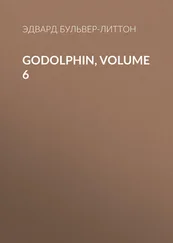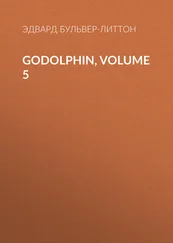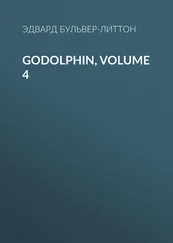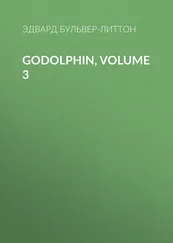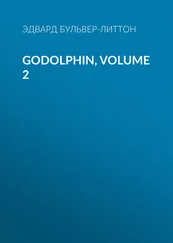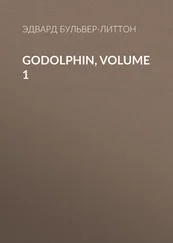Эдвард Бульвер-Литтон - Godolphin, Complete
Здесь есть возможность читать онлайн «Эдвард Бульвер-Литтон - Godolphin, Complete» — ознакомительный отрывок электронной книги совершенно бесплатно, а после прочтения отрывка купить полную версию. В некоторых случаях можно слушать аудио, скачать через торрент в формате fb2 и присутствует краткое содержание. Жанр: foreign_prose, literature_19, Европейская старинная литература, foreign_antique, на английском языке. Описание произведения, (предисловие) а так же отзывы посетителей доступны на портале библиотеки ЛибКат.
- Название:Godolphin, Complete
- Автор:
- Жанр:
- Год:неизвестен
- ISBN:нет данных
- Рейтинг книги:4 / 5. Голосов: 1
-
Избранное:Добавить в избранное
- Отзывы:
-
Ваша оценка:
- 80
- 1
- 2
- 3
- 4
- 5
Godolphin, Complete: краткое содержание, описание и аннотация
Предлагаем к чтению аннотацию, описание, краткое содержание или предисловие (зависит от того, что написал сам автор книги «Godolphin, Complete»). Если вы не нашли необходимую информацию о книге — напишите в комментариях, мы постараемся отыскать её.
Godolphin, Complete — читать онлайн ознакомительный отрывок
Ниже представлен текст книги, разбитый по страницам. Система сохранения места последней прочитанной страницы, позволяет с удобством читать онлайн бесплатно книгу «Godolphin, Complete», без необходимости каждый раз заново искать на чём Вы остановились. Поставьте закладку, и сможете в любой момент перейти на страницу, на которой закончили чтение.
Интервал:
Закладка:
Edward Bulwer-Lytton
Godolphin, Complete
When the parentage of Godolphin was still unconfessed and unknown, you were pleased to encourage his first struggles with the world: Now, will you permit the father he has just discovered to re-introduce him to your notice? I am sorry to say, however, that my unfilial offspring, having been so long disowned, is not sufficiently grateful for being acknowledged at last: he says that he belongs to a very numerous family, and, wishing to be distinguished from his brothers, desires not only to reclaim your acquaintance, but to borrow your name. Nothing less will content his ambition than the most public opportunity in his power of parading his obligations to the most accomplished gentleman of our time. Will you, then, allow him to make his new appearance in the world under your wing, and thus suffer the son as well as the father to attest the kindness of your heart and to boast the honour of your friendship?
Believe me,
My dear Count d’Orsay,
With the sincerest regard,
Yours, very faithfully and truly,
E. B. L.PREFACE TO GODOLPHIN
In the Prefaces to this edition of my works, I have occasionally so far availed myself of that privilege of self-criticism which the French comic writer, Mons. Picord, maintains or exemplifies in the collection of his plays,—as, if not actually to sit in judgment on my own performances, still to insinuate some excuse for their faults by extenuatory depositions as to their character and intentions. Indeed, a writer looking back to the past is unconsciously inclined to think that he may separate himself from those children of his brain which have long gone forth to the world; and though he may not expatiate on the merits his paternal affection would ascribe to them, that he may speak at least of the mode in which they were trained and reared—of the hopes he cherished, or the objects he entertained, when he finally dismissed them to the opinions of others and the ordeal of Fate or Time.
For my part, I own that even when I have thought but little of the value of a work, I have always felt an interest in the author’s account of its origin and formation, and, willing to suppose that what thus affords a gratification to my own curiosity, may not be wholly unattractive to others, I shall thus continue from time to time to play the Showman to my own machinery, and explain the principle of the mainspring and the movement of the wheels.
This novel was begun somewhere in the third year of my authorship, and completed in the fourth. It was, therefore, composed almost simultaneously with Eugene Aram, and afforded to me at least some relief from the gloom of that village tragedy. It is needless to observe how dissimilar in point of scene, character, and fable, the one is from the other; yet they are alike in this—that both attempt to deal with one of the most striking problems in the spiritual history of man, viz., the frustration or abuse of power in a superior intellect originally inclined to good. Perhaps there is no problem that more fascinates the attention of a man of some earnestness at that period of his life, when his eye first disengages itself from the external phenomena around him, and his curiosity leads him to examine the cause and account for the effect;—when, to cite reverently the words of the wisest, “He applies his heart to know and to search, and to seek out wisdom and the reason of things, and to know the wickedness of folly, even of foolishness and madness.”
In Eugene Aram, the natural career of genius is arrested by a single crime; in Godolphin, a mind of inferior order, but more fanciful colouring, is wasted away by the indulgence of those morbid sentiments which are the nourishment of egotism, and the gradual influence of the frivolities which make the business of the idle. Here the Demon tempts or destroys the hermit in his solitary cell. There, he glides amidst the pomps and vanities of the world, and whispers away the soul in the voice of his soft familiars, Indolence and Pleasure.
Of all my numerous novels, Pelham and Godolphin are the only ones which take their absolute groundwork in what is called “The Fashionable World.” I have sought in each to make the general composition in some harmony with the principal figure in the foreground. Pelham is represented as almost wholly unsusceptible to the more poetical influences. He has the physical compound, which, versatile and joyous, amalgamates easily with the world—he views life with the lenient philosophy that Horace commends in Aristippus: he laughs at the follies he shares; and is ever ready to turn into uses ultimately (if indirectly) serious, the frivolities that only serve to sharpen his wit, and augment that peculiar expression which we term “knowledge of the world.” In a word, dispel all his fopperies, real or assumed, he is still the active man of crowds and cities, determined to succeed, and gifted with the ordinary qualities of success. Godolphin, on the contrary, is the man of poetical temperament, out of his place alike among the trifling idlers and the bustling actors of the world—wanting the stimulus of necessity—or the higher motive which springs from benevolence, to give energy to his powers, or definite purpose to his fluctuating desires; not strong enough to break the bonds that confine his genius—not supple enough to accommodate its movements to their purpose. He is the moral antipodes to Pelham. In evading the struggles of the world, he grows indifferent to its duties—he strives with no obstacles—he can triumph in no career. Represented as possessing mental qualities of a higher and a richer nature than those to which Pelham can pretend, he is also represented as very inferior to him in constitution of character, and he is certainly a more ordinary type of the intellectual trifler.
The characters grouped around Godolphin are those with which such a man usually associates his life. They are designed to have a certain grace—a certain harmony with one form or the other of his twofold temperament:—viz., either its conventional elegance of taste, or its constitutional poetry of idea. But all alike are brought under varying operations of similar influences; or whether in Saville, Constance, Fanny, or Lucilla—the picture presented is still the picture of gifts misapplied—of life misunderstood. The Preacher who exclaimed, “Vanity of vanities! all is vanity,” perhaps solved his own mournful saying, when he added elsewhere, “This only have I found, that God made men upright—but they have sought out many inventions.”
This work was first published anonymously, and for that reason perhaps it has been slow in attaining to its rightful station amongst its brethren—whose parentage at first was openly acknowledged. If compared with Pelham, it might lose, at the first glance, but would perhaps gain on any attentive reperusal.
For although it must follow from the inherent difference in the design of the two works thus referred to, that in Godolphin there can be little of the satire or vivacity which have given popularity to its predecessor, yet, on the other hand, in Godolphin there ought to be a more faithful illustration of the even polish that belongs to luxurious life,—of the satiety that pleasure inflicts upon such of its votaries as are worthy of a higher service. The subject selected cannot adroit the same facility for observation of things that lie on the surface—but it may well lend itself to subtler investigation of character—allow more attempt at pathos, and more appeal to reflection.
Regarded as a story, the defects of Godolphin most apparent to myself, are in the manner in which Lucilla is re-introduced in the later chapters, and in the final catastrophe of the hero. There is an exaggerated romance in the one, and the admission of accident as a crowning agency in the other, which my maturer judgment would certainly condemn, and which at all events appear to me out of keeping with the natural events, and the more patient investigation of moral causes and their consequences, from which the previous interest of the tale is sought to be attained. On the other hand, if I may presume to conjecture the most probable claim to favour which the work, regarded as a whole, may possess—it may possibly be found in a tolerably accurate description of certain phases of modern civilisation, and in the suggestion of some truths that may be worth considering in our examination of social influences or individual conduct.
Читать дальшеИнтервал:
Закладка:
Похожие книги на «Godolphin, Complete»
Представляем Вашему вниманию похожие книги на «Godolphin, Complete» списком для выбора. Мы отобрали схожую по названию и смыслу литературу в надежде предоставить читателям больше вариантов отыскать новые, интересные, ещё непрочитанные произведения.
Обсуждение, отзывы о книге «Godolphin, Complete» и просто собственные мнения читателей. Оставьте ваши комментарии, напишите, что Вы думаете о произведении, его смысле или главных героях. Укажите что конкретно понравилось, а что нет, и почему Вы так считаете.


